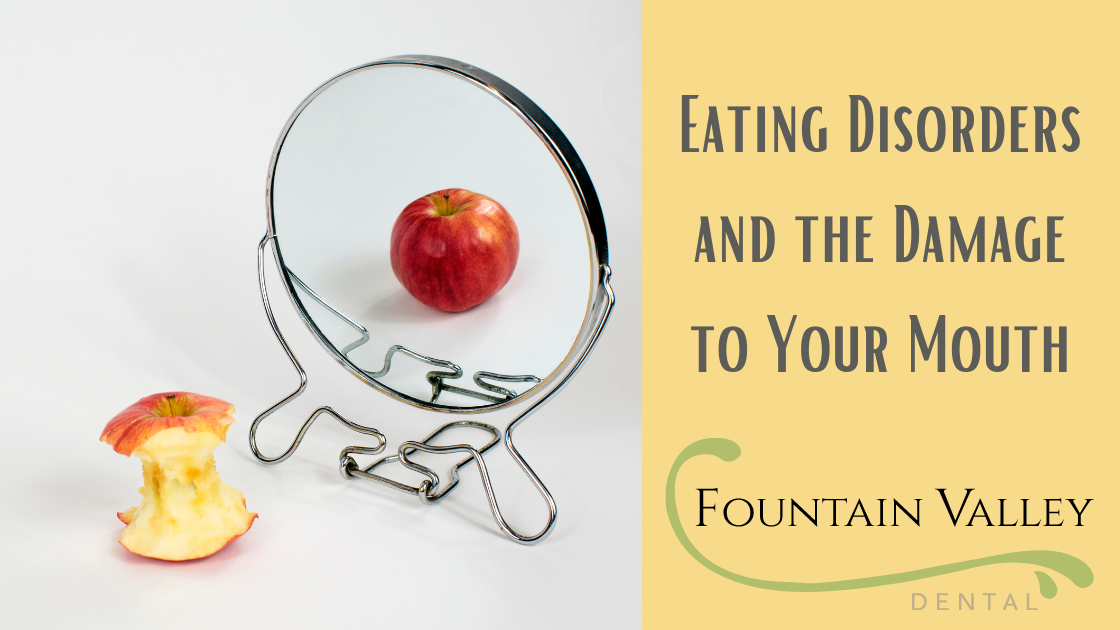There are several negative effects on the mouth caused by eating disorders, and their symptoms range from mild to severe, and dental experts are the ones to identify the bells and whistles. Several studies are showing how eating disorders affect our overall oral health, and below, we have listed the mouth damage that eating disorders can cause.
How Eating Disorders Can Affect Your Mouth
Eating disorders can hurt your health and body in general, and this should be handled as a serious health issue. Here are some mouth damages caused by eating disorders:
Damage Of The Soft Palate
Purging can cause redness, cuts in the mouth, and scratches, usually on the upper surface of the mouth. Damage like this is a red flag for dental experts, this is because healthy day-to-day behaviors barely harm this area of the mouth. The damage to the soft palate is usually coupled with bruises on the knuckles due to the teeth’s pressure on the skin when purging.
Cavities
Eating disorders bring about frequent vomiting, and the acids from vomiting can wear off so much tooth enamel, thereby leaving holes or cavities. Eating sugary foods and drinking sodas too fast, also known as bingeing, also causes tooth decay.
When you have tooth decay, you usually bleed whenever you brush. If you ignore medical attention and don’t get that cavity filled, the hole will turn out to grow so big that there will be a possibility of losing the tooth.
Yellow And Brittle Teeth
As the tooth cavity gets worse, you start noticing that the color and texture of the teeth are gradually changing. And as time goes on, the teeth get weaker and a lot more brittle than they used to be.
The teeth can easily chip and they start to appear very rough at the edge. In most cases, they’ll turn yellow or have a glassy look. Eating disorders can also alter the shape and length of the teeth in general.
Swollen Salivary Glands
Due to frequent vomiting, the acids that the vomit contains can irritate the salivary glands. The glands on the side of the cheek produce saliva, the slimy fluid that also helps with digestion. Saliva also prevents the teeth from decaying. If the salivary glands get infected, there’ll be swelling around the jawline.
Even as some damages caused by eating disorders might not be reversible, the swelling on the salivary gland should reduce as soon as you receive medical attention and avoid bingeing.
Dry mouth
When the mouth lacks saliva, there’s a feeling as if your mouth is parched. A dry mouth condition can be more than just annoying given that it changes the taste of food and how you eat in general.
The teeth can also be damaged with the dry mouth condition because saliva washes away bacteria that can cause tooth decay. Even an existing decaying tooth can worsen with the dry mouth condition.
Conclusion
To treat mouth damage caused by eating disorders, you should adopt a regular brushing and flossing habit. Avoid brushing your teeth and use baking soda instead to rinse your mouth if you purge, this is because it neutralizes the acid that’s present in your mouth. Also, you should regularly consult your dentist and be straightforward with them. Dental experts are best to examine the teeth and find the right treatment.
Contact Fountain Valley Dental – Dental Services in Molalla
MORE TIPS FOR DENTAL PATIENTS:
- What Are Porcelain Veneers?
- Do I Need Sedation for Dental Work?
- What is Oral Conscious Sedation?
- Can Everyone Use Invisalign?
- When to Fix a Tooth and When to Pull it
- How Professional Differs from OTC
- How Safe is Teeth Whitening?
- What is Sedation Dentistry?
- When Do I Need a Root Canal?
- Affiliate: Encompass Health in Cypress for Neurological Rehabilitation
